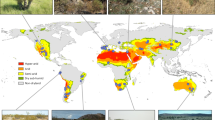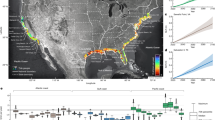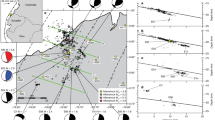Abstract
THE article by Dr. D. F. W. Baden-Powell, on “Isostatic Recovery in Scotland”1, claims that the evidence there presented makes it possible to decide “between the rival theories of W. B. Wright and Depéret”. Dr. Baden-Powell appears to be challenging the theory of isostatic elevation of Scotland and the north of England following removal of the burden of ice in those regions during the glacial period; but he also makes reference to “the supposed recent tilting of the southern parts of Britain”.
This is a preview of subscription content, access via your institution
Access options
Subscribe to this journal
Receive 51 print issues and online access
$199.00 per year
only $3.90 per issue
Buy this article
- Purchase on Springer Link
- Instant access to full article PDF
Prices may be subject to local taxes which are calculated during checkout
Similar content being viewed by others
References
Baden-Powell, D. F. W., Nature, 199, 546 (1963).
Godwin, H., Proc. Roy. Soc. Lond., B, 153, 287 (1960).
Author information
Authors and Affiliations
Rights and permissions
About this article
Cite this article
GODWIN, H. Isostatic Recovery in Scotland. Nature 199, 1277–1278 (1963). https://doi.org/10.1038/1991277a0
Issue Date:
DOI: https://doi.org/10.1038/1991277a0
Comments
By submitting a comment you agree to abide by our Terms and Community Guidelines. If you find something abusive or that does not comply with our terms or guidelines please flag it as inappropriate.



